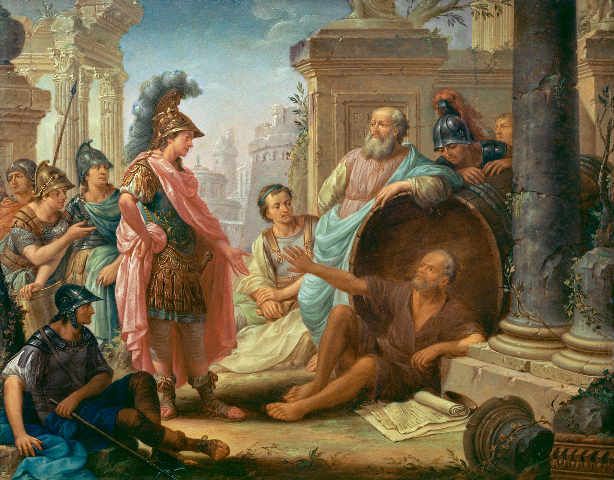

Individually, the surviving texts are deeply flawed representations of their archetype. However, scholars have slowly come to realise that all these writers are essentially following the History Concerning Alexander by Cleitarchus, who wrote in Alexandria a mere fifty years after Alexander’s death. But what Arrian has neglected to tell his readers is that Alexander had to advance that way, because he had discovered that his Persian opponents had planted an array of concealed metal spikes across the middle of the battlefield! Fortunately an antidote to Arrian’s editing survives in the form of a small group of alternative histories of Alexander’s reign whose authors (Diodorus, Curtius and the Metz Epitomiser) also wrote in the time of the Romans. For example, modern strategists have read in Arrian that Alexander trotted his cavalry to the right in his most famous battle and have followed Arrian in interpreting this as a weird tactic to thin the enemy’s centre, although, of course, it also thinned Alexander’s own centre quite dangerously. Arrian’s intention was to vaunt Alexander’s credentials as an authentic Greek hero in terms that he considered would appeal to a Roman imperial audience of the second century AD, but the result to modern eyes is a rampaging, megalomaniacal automaton, whose personality and motives are not only distorted and misrepresented, but are also rendered quite incomprehensible by Arrian’s omissions. Furthermore Arrian chose to compound the difficulties by censoring details of Alexander’s personal relationships and private life. Arrian’s perspective on the events was just as out-of-date in his time as the perspective of someone today on the era of Shakespeare, Raleigh and Drake. The persona commonly attributed to Alexander today both in the media and in literature has been overwhelmingly influenced by an account of the king’s career written almost five centuries after his death by Arrian of Nicomedia, a Roman governor of the province of Cappadocia. Here you can rediscover the oldest and also the most authentic literary portrait of the king spanning all thirteen years of his reign. Here you will find Alexander revealed in a startling new light as a very human and believable individual, who drives and is then driven by a momentous cascade of events. Now the entire book has been revived in an exciting reconstruction based upon an in-depth analysis of the surviving ancient works that it inspired. Most of the surviving ancient texts on Alexander were based upon his work, but every copy of the original was destroyed in antiquity. Several of the embellished versions of the anecdote do not name either one or both of the protagonists, and some indeed substitute Socrates for Diogenes.The most influential account of the career of Alexander the Great was penned by Cleitarchus in the decades after Alexander's death. Versions upon versions of the anecdote exist, with the origins of most appearing to be, either directly or indirectly, in the account of the meeting given by Plutarch, whose actual historicity has also been questioned. The literature and artwork influenced by this story are extensive. Although this coincidence is suspect (since neither man's date of death can be conclusively verified), the anecdote, and the relationship between the two people, has been the subject of many literary and artistic works over the centuries, from the writings of Diogenes Laërtius to David Pinski's 1930 dramatic reconstruction of the encounter, Aleḳsander un Dyogenes including writings from the Middle Ages, several works of Henry Fielding, and possibly even Shakespeare's King Lear along the way. Plutarch and Diogenes Laërtius report that Alexander and Diogenes died on the same day, in 323 BC. Anecdote in Greek philosophical history Alexander visits Diogenes in Corinth - Diogenes asks him to stand out of his sun (engraving)


 0 kommentar(er)
0 kommentar(er)
